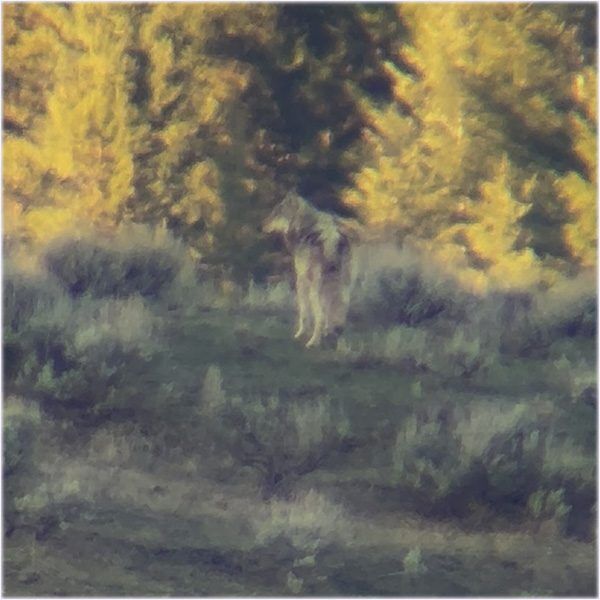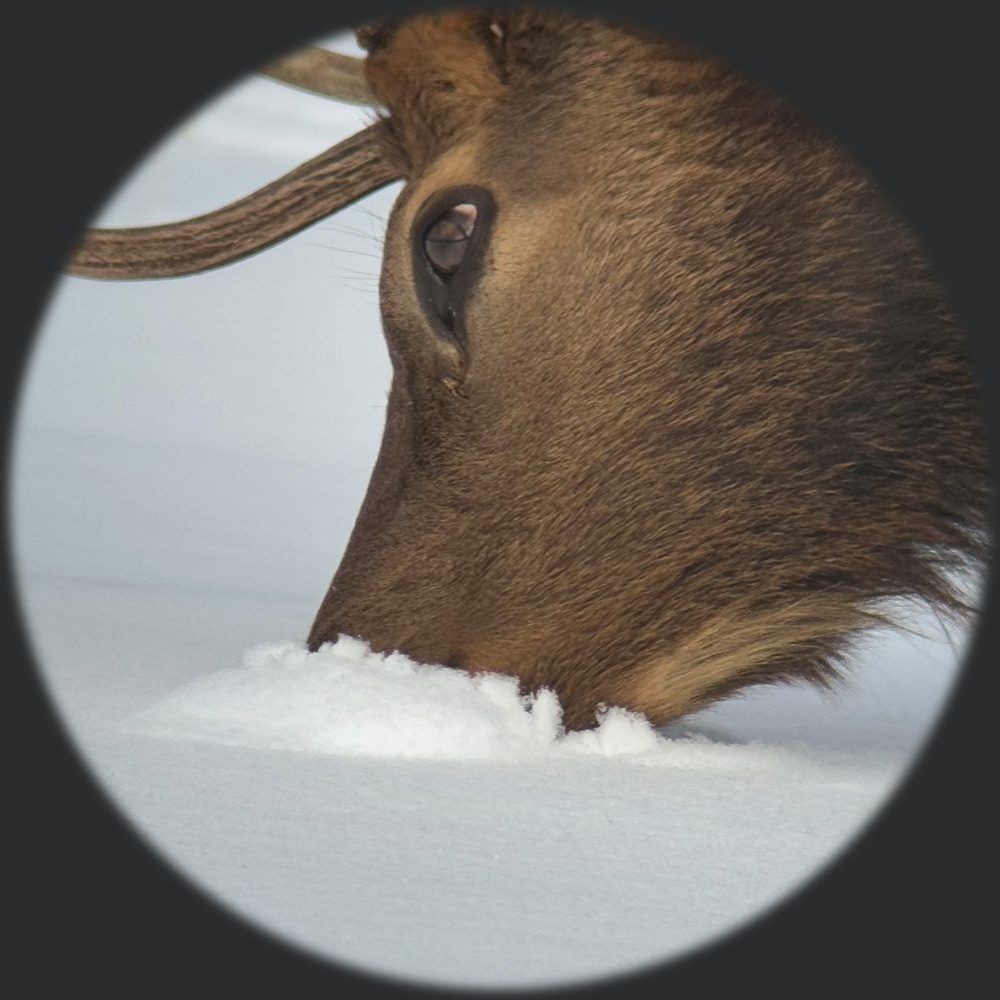What Might I See? Greater Yellowstone Wildlife

This wolf was 1 mile away, but the scope brought it into view.

At 30 feet, the scope picked up much more detail in this elk.
This is a far from exhaustive list of the wildlife you might see on your tour. The icons represent the seasons you might see a species.
For example beavers are around in winter, but they spend most of their time in their lodges and feeding off twigs they cache beneath the ice in their ponds, so winter is not listed as a season to see beavers. Spring: May & June
Summer: July & August
Fall: September & October
Winter: November-April
If you tour with us you will
- see more wildlife,
- spend less of your valuable vacation time searching for it
- get a closer look at it using our optics and
- learn something cool about it
The Most Popular Wildlife
Grizzly Bear
Fun Fact: Guides of Jackson Hole founder Trevor Bloom features in the "Nature" documentary 'Queen of the Tetons' about roadside bear 399.
Bison
Grim Fact: Four technological advances in the 1870s enabled settlers to reduce millions of bison to a few hundred in less than a decade:
- Railway expansion,
- A more powerful rifle,
- A hunting strategy that exploited their defensive herding instinct,
- a new way to tan their tough leather
By 1894 the Yellowstone population dropped to 23 animals.
Black Bear
Freaky Fact: Black bears hunt less than grizzlies, but are more likely to stalk humans.
Moose
Fun fact: Moose fur is so effective that the animals tend to overheat.
Wolf
Fun Fact: Almost half the regions wolves are black. Better disease resistance means dark genes persist.
Pronghorn
Fun Fact: This uniquely American mammal is the second fastest land animal on earth. The Jackson herd make one of the longest migrations in the world: 300 miles round trip.
Elk
Fun Fact: Fed by a skin of velvet elk antlers can grow an inch a day.
Other Mammals
Bighorn Sheep
Fun Fact: Bighorn winter on the Elk Refuge where the rams put on quite a show during the early December rut.
Mule Deer
Fun Fact: Mule Deer antlers fork in two directions.
White-tailed Deer
Fun Fact: White-tailed deer arrived in Jackson Hole in 2007.
Fox
Funky Fact: Mating foxes can get stuck together.
Otter
Fun Fact: Otters have the densest fur of any mammal, with up to one million hairs/square inch.
Coyote
Fun Fact: With 11 calls, coyotes are the most vocal mammals in America.
Mountain Lion
Fun Fact: Plenty of cougars have watched you, but if you see one count yourself lucky.
Badger
Fun Fact: Badger burrows a wide and short, like the animals themselves.
Weasels
Ermine & Martens
Fun Fact: Weasels have whiskers on their elbows.
Beaver
Fun Fact: Beaver dams & wetlands are barriers to forest fire.
Mountain Goat
Fun Fact: Invasive goats out compete bighorns, and are culled in Grand Teton National Park.
Birds
Osprey
Fun Fact: Osprey are adapted for fishing, and must migrate to places with open water in the winter.
Mountain Bluebird
Fun Fact: Bluebirds migrate up the mountains in summer.
Sandhill Crane
Fun Fact: Migrating cranes can fly 200-300 miles a day.
Harlequin Duck
Fun fact: The most ornate of Yellowstone's duck species.
Bald Eagle
Fun Fact: It takes five years for a bald eagles white feathers to grown in.
White Pelican
Fun Fact: Pelicans feed by scooping fish.
Owls
Fun Fact: Great Grey owls can be 2.5 foot long.
Trumpeter Swan
Grim Fact: Fashion almost caused their extinction in the 1920s.
Grouse
Fun Fact: All 4 local grouse species have intricate courtships.
Bohemian Waxwing
Fun Fact: A rare migrant that over-winters here.
Northern Harrier
Fun Fact: These owl-like hawks hunt by sound.